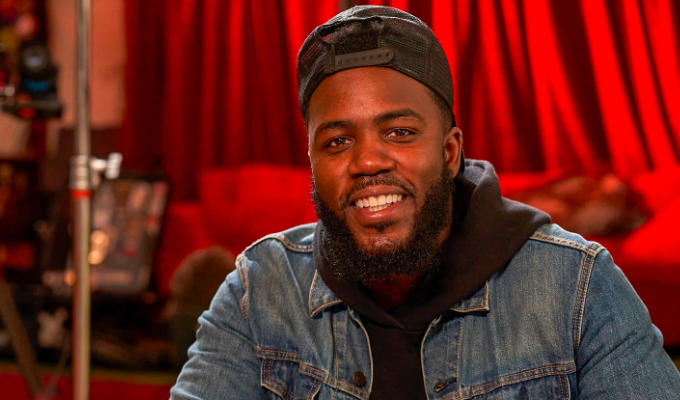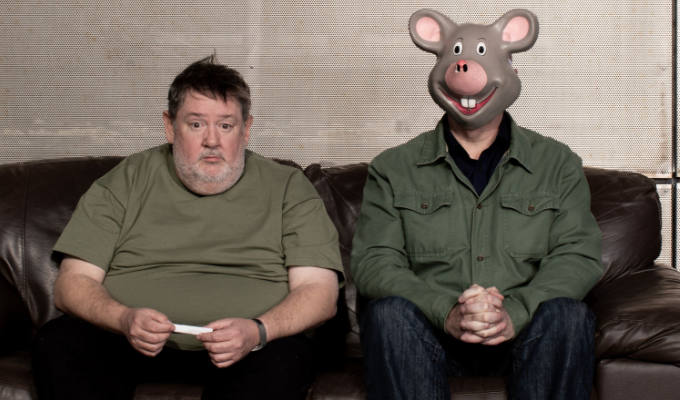
Mo Gilligan: Black, British and Funny
Note: This review is from 2020
TV review by Steve Bennett
There have, understandably, been a few TV retrospectives of late hailing Britain’s black comedy heroes.
And although well-intentioned, they often have the unfortunate effect of reminding viewers that while 30 years ago, we had groundbreaking shows such as Desmond’s and The Real McCoy on terrestrial telly, today the diversity situation’s worsened, with the few comedy shows that are led by non-white talent usually confined to a digital ghetto.
Mo Gilligan’s Black, British and Funny, however, was as much polemic as celebration, asking those awkward questions about the dearth of opportunities for black comics. The notion of a ‘one-out, one-in’ policy, best vocalised by Gina Yashere, loomed large
The suggestion that with only one high-profile black comedian is allowed to rise at a time certainly seems true when you consider Gilligan’s argument that there’s only really been one well-promoted black comedy star per generation: Lenny Henry, Richard Blackwood and now Gilligan himself.
It is not, he argued, through lack of talent – a position he supports with evidence of the vibrant success of the black comedy circuit, pioneered by the likes of Angie Le Mar and John Simmit. With strictly limited broadcast profile, such performers fill theatres with a uniquely raucous energy, where the more thinly-spread alternative comedy circuit often struggles to fill pub function rooms with polite titters.
Gilligan generously celebrated colleagues’ work and the present state of a circuit that remains under the mainstream radar (‘if you don’t know about it, you’re missing out’) to give a positive spin to counter any negativity in his complaints of industry bias that is denying black comics a route to the top.
An understandable counter-argument may be that it’s tough for ANY performer to break through – indeed any comedy fan could list dozens of acts of any colour they think deserve greater exposure – but Gilligan anticipated that response. Even if not every talented black comedian was going to make it, he convincingly makes the case that the deck is stacked because so very few do.
Movements like Black Lives Matter may make a difference, but we’ve had diversity drives before that never seem to make lasting changes. But Gilligan highlighted a more systemic shift that’s likely to be a bigger catalyst.
For increasingly the gatekeepers to wider audiences are finding that the entry points they guard are no longer the only routes to the top.
From the days of Simmit, the former Teletubby, establishing his parallel circuit, to Eddie Kadi taking the gamble of booking the O2, black comics have a long history of ‘creating their own lane’ – after all, they’ve had little choice. But in the internet age, such self-sufficiency is increasingly bypassing the roadblocks to the big time.
Gilligan ended with nods to those who have not only gone viral, but parlayed that success into something more lasting, citing hit videos like #HoodDocumentary, Dnt Jealous Me, Aurie Styla’s stand-up, and, bang up to date, Munya Chawawa.
After all Gilligan himself built his audience up virally, thanks to the Coupla Cans meme – and this thoughtful, celebratory personal film showed he doesn’t want to pull the ladder up behind him.
• Mo Gilligan: Black, British and Funny is available on All4.
Review date: 16 Oct 2020
Reviewed by: Steve Bennett








